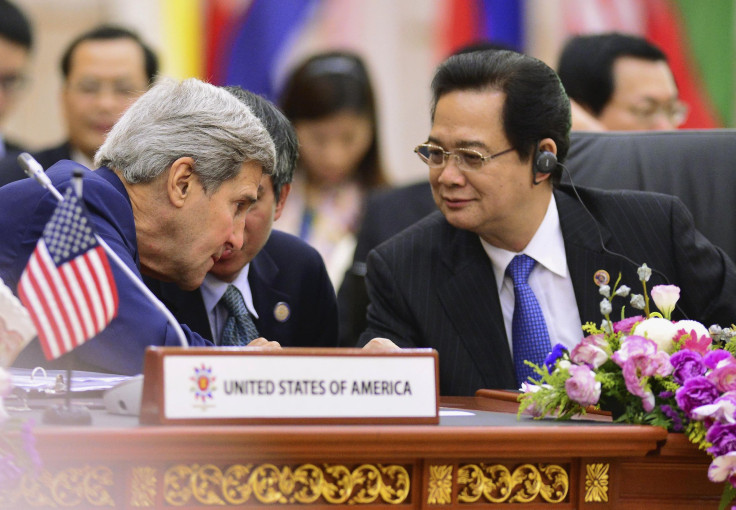US-Vietnam Nuclear Energy Deal Will Help The Latter Cope With Power Shortages While Keeping It From Acquiring Nuclear Weapons

The United States and Vietnam on Thursday inked a civilian nuclear pact, which paves the way for U.S. companies to tap Vietnam’s potential nuclear energy market, and also prevents the one-party Communist state from producing ingredients for nuclear weapons.
U.S. Secretary of State John Kerry and Vietnamese Prime Minister Nguyen Tan Dung sealed the deal on the sidelines of the East Asia summit in Brunei, as Vietnam -- one of Southeast Asia’s fastest-growing economies slated to be a developed nation by 2020 -- pursues nuclear power to tackle energy shortages and plans to set up its first nuclear power plant over the next seven years.
“This agreement will create numerous opportunities for our businesses,” Kerry told Vietnam's Foreign Minister Pham Binh Minh, according to Reuters. “Obviously our nuclear cooperation is quite significant.”
The U.S. is the main trading partner of Vietnam, which is East Asia's second-largest nuclear energy market after China, and is expected to be worth $50 billion by 2030, Kerry said.
Once the agreement wins President Barack Obama’s approval, it will undergo a review by the U.S. Congress before it comes into effect. However, Vietnam’s active suppression of dissent and religious freedom has been a roadblock for the U.S. in forging closer ties, and according to analysts, a recent government clampdown on detractors could complicate the deal’s prospects in Congress.
Vietnam has teamed up with Russia to set up its first nuclear plant in the south-central province of Ninh Thuan.
In a press briefing in Washington, a U.S. official said the agreement “will also strengthen the Obama administration's long-standing policy of limiting the spread or enrichment and reprocessing capabilities around the world,” Reuters reported.
The deal was reached as part of an initiative declared by Obama in the city of Prague in April 2009 to promote nuclear security and prevention of the spread of nuclear weapons through partnerships.
© Copyright IBTimes 2024. All rights reserved.





















